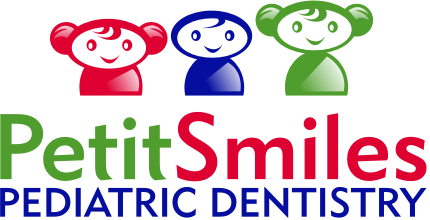
Healthy Eating for Healthy Teeth
Introduction
A radiant smile is not only a sign of happiness but also an indicator of good oral health. While regular brushing, flossing, and dental check-ups are essential for maintaining healthy teeth, the impact of our diet on oral health should not be underestimated. The foods we consume play a pivotal role in shaping the condition of our teeth and gums. Here al Petit Smiles, we explore the significance of healthy eating for maintaining strong and healthy teeth, focusing on the types of foods that promote oral well-being. Remember to follow us on Instagram for more tips.
The Role of Nutrition in Oral Health
When we think about oral health, most of us concentrate on brushing and flossing. However, nutrition plays a crucial role in maintaining strong teeth and gums. The foods we consume can either support or undermine our oral health. A diet rich in essential nutrients, vitamins, and minerals can fortify teeth and reduce the risk of dental problems. On the other hand, excessive consumption of sugary, acidic, and processed foods can lead to tooth decay, gum disease, and other oral health issues.
Building Blocks for Strong Teeth
Calcium and Phosphorus: Calcium and phosphorus are two vital minerals required for strong teeth and bones. They are the building blocks of enamel, the protective outer layer of teeth. Dairy products like milk, yogurt, and cheese are excellent sources of calcium and phosphorus, making them essential additions to a tooth-friendly diet.
Vitamin D: Vitamin D plays a significant role in aiding the absorption of calcium. It helps maintain the right balance of minerals in teeth, promoting their strength. Sunlight exposure is a natural way to get vitamin D, and certain foods like fatty fish, fortified dairy products, and egg yolks are also good sources.
Vitamin C: Vitamin C is crucial for healthy gums as it supports collagen production, which is essential for maintaining gum tissue integrity. Citrus fruits, strawberries, bell peppers, and broccoli are rich in vitamin C and should be included in a well-rounded diet for healthy teeth.

Foods to Avoid for Better Oral Health
Sugary Foods: Bacteria in our mouths feed on sugars, producing acids that erode tooth enamel and lead to cavities. Reducing the consumption of sugary snacks, sodas, and candies can significantly lower the risk of dental decay.
Acidic Foods: Acidic foods like citrus fruits, tomatoes, and pickles can weaken enamel over time. While these foods offer essential nutrients, it’s best to consume them in moderation and rinse your mouth with water afterward to minimize the potential damage.
Sticky and Processed Foods: Sticky and processed foods can get lodged between teeth, promoting bacterial growth and increasing the likelihood of cavities. Opt for whole foods and be sure to floss regularly to keep your teeth clean and healthy.
Incorporating Teeth-Friendly Foods into Your Diet
Crunchy Fruits and Vegetables: Foods with natural crunch, such as apples, carrots, and celery, act as natural toothbrushes. Their abrasive texture helps clean the surface of teeth while stimulating saliva production, which neutralizes acids and remineralizes enamel.
Nuts and Seeds: Nuts and seeds are rich in essential minerals and vitamins that promote oral health. Chewing on almonds, cashews, or sesame seeds can help strengthen teeth and reduce the buildup of plaque.
Leafy Greens: Spinach, kale, and other leafy greens are high in calcium and folic acid, contributing to strong teeth and healthy gums. Additionally, they contain B vitamins that aid in maintaining oral health.
Water: Staying hydrated is crucial for oral health. Drinking water helps wash away food particles and bacteria, keeping your mouth clean and free from harmful substances
| Category | Foods to Include | Foods to Avoid |
|---|---|---|
| Building Blocks for Strong Teeth | – Calcium: Milk, yogurt, cheese<br>- Phosphorus: Dairy products, nuts<br>- Vitamin D: Fatty fish, fortified dairy, egg yolks<br>- Vitamin C: Citrus fruits, strawberries, bell peppers, broccoli | – Sugary Foods: Candies, sodas, sugary snacks<br>- Acidic Foods: Citrus fruits, tomatoes, pickles<br>- Sticky and Processed Foods: Processed snacks, sticky candies |
| Incorporating Teeth-Friendly Foods | – Crunchy Fruits and Vegetables: Apples, carrots, celery<br>- Nuts and Seeds: Almonds, cashews, sesame seeds<br>- Leafy Greens: Spinach, kale<br>- Water: Stay hydrated | – Sugary Foods: Candies, sodas, sugary snacks<br>- Acidic Foods: Citrus fruits, tomatoes, pickles<br>- Sticky and Processed Foods: Processed snacks, sticky candies |
Remember, this table is a brief summary. For more detailed information and explanations, refer to the article above or contact us. Following these recommendations will support your dental health and contribute to a radiant and healthy smile.
Conclusion
Healthy eating is not only vital for our overall well-being but also plays a significant role in maintaining healthy teeth and gums. By including teeth-friendly foods in our foods in our diet and avoiding sugary and acidic treats, we can significantly reduce the risk of dental issues. Regular dental check-ups, proper oral hygiene, and a well-balanced diet together will ensure that your smile stays bright and healthy for years to come. Remember, a nourishing diet is the foundation of a beautiful and lasting smile.
Our Dental Offices, with the Best Pediatric Dentists in Coral Gables and Doral FL, can provide additional guidance on how to maintain good oral hygiene and prevent dental problems.


